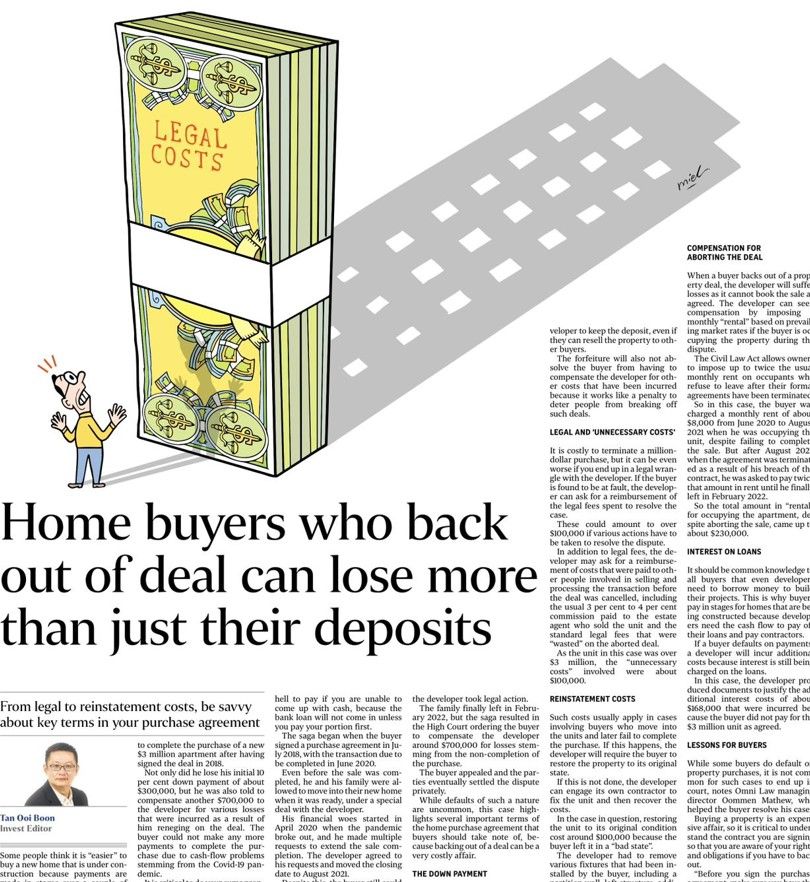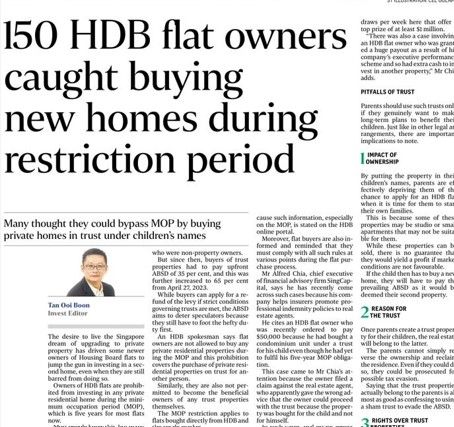Latest Property News

HDB to double interim rental flats for families to 4,000 units over next two years (12 Jun 23)
HDB will expand its provision of temporary housing by doubling the number of interim rental flats to 4,000 units within the next two years. This move aims to accommodate families experiencing longer waiting times for their new flats due to delays caused by the COVID-19 pandemic. HDB had already increased the supply of flats under the Parenthood Provisional Housing Scheme from 800 units in 2021 to 1,800 units by 2023. The additional interim rental flats will help meet the sustained demand for affordable housing.
[Summary]
-
The supply of flats under the Parenthood Provisional Housing Scheme (PPHS) has already been increased from 800 units in 2021 to 1,800 units by 2023.
-
HDB aims to further increase the supply of PPHS flats to 4,000 units over the next two years to meet the demand and reduce waiting times for buyers.
-
HDB is studying ways to maximize the available pool of PPHS flats, including exploring the option of flat sharing for larger flats.
-
PPHS flats are available to eligible buyers with a monthly household income of $7,000 or below and an uncompleted flat from HDB's sales exercises.
-
The completion of public and private homes in 2023 is expected to ease the pressure on the rental market as households waiting for new homes will likely vacate their temporary units.
What measures can HDB implement to further optimize the pool of flats under the Parenthood Provisional Housing Scheme?

Home buyers who back out of the deal can lose more than just their deposits (28 May 23)
A recent case in Singapore highlights the costly repercussions of backing out of a property purchase. The buyer, who faced cash-flow problems due to the Covid-19 pandemic, failed to complete the purchase of a $3 million apartment. As a result, he lost his initial down payment and had to compensate the developer for losses incurred. The case emphasizes the importance of understanding the terms of the purchase agreement and being financially prepared to fulfill the obligations.
[Summary]
-
Failing to complete a property purchase can lead to significant financial losses, including the forfeiture of the initial down payment.
-
Buyers who move into the property and later fail to complete the purchase may be required to restore the unit to its original condition, incurring reinstatement costs.
-
When occupying a property without completing the sale, you may be subject to rental charges based on prevailing market rates.
-
The Civil Law Act allows owners to impose up to twice the usual monthly rent on occupants who refuse to leave after the formal agreements have been terminated.
-
Interest charges continue to accumulate on developers' loans if buyers default on payments, leading to increased costs and potential legal repercussions.
Are there specific insurance or protection schemes available for buyers to safeguard their deposits and mitigate financial losses in case of unexpected financial hardships that prevent them from completing a property purchase?

150 HDB flat owners caught buying new homes during restriction period (21 May 23)
[Summary]
-
Understanding the Minimum Occupation Period (MOP) Rule: HDB flat owners need to be aware that they are prohibited from investing in any private residential property during the MOP, which is typically five years. This rule applies to both direct purchases from HDB and resale market transactions.
-
Trust Schemes Are Not a Way to Bypass the MOP Rule: Many HDB owners mistakenly believe that they can invest in a second property by using trust schemes and putting the property under their children's names. However, the Housing Board strictly prohibits such practices. Purchasing private properties on trust for someone else still violates the MOP rule.
-
Penalties and Enforcement Actions: HDB takes the violation of MOP regulations seriously and can take various enforcement actions against errant owners. Depending on the severity of the infringement, owners may receive a written warning, face financial penalties of up to $50,000, or even have their flat compulsorily acquired by the HDB.
-
Implications of Trust Ownership: Parents who use trust schemes to put properties under their children's names should consider the long-term implications. By doing so, they potentially deprive their children of the opportunity to apply for an HDB flat when the time comes for them to start their own families. Additionally, the ownership of trust properties cannot be easily reversed, and attempts to do so may result in legal consequences and tax evasion charges.
-
Responsible Planning and Avoiding Tax Evasion: While it is essential to plan for the future and provide for children, avoiding taxes should not be the primary motivation behind trust schemes. Trust properties eventually vest in the children's names, giving them control over the assets. If conflicts arise, beneficiaries can seek court orders to remove their parents as trustees. Furthermore, couples treating trust properties as matrimonial assets may face claims from future spouses.
What other alternatives or incentives can be offered to HDB flat owners who aspire to upgrade to private properties without violating the MOP regulations?